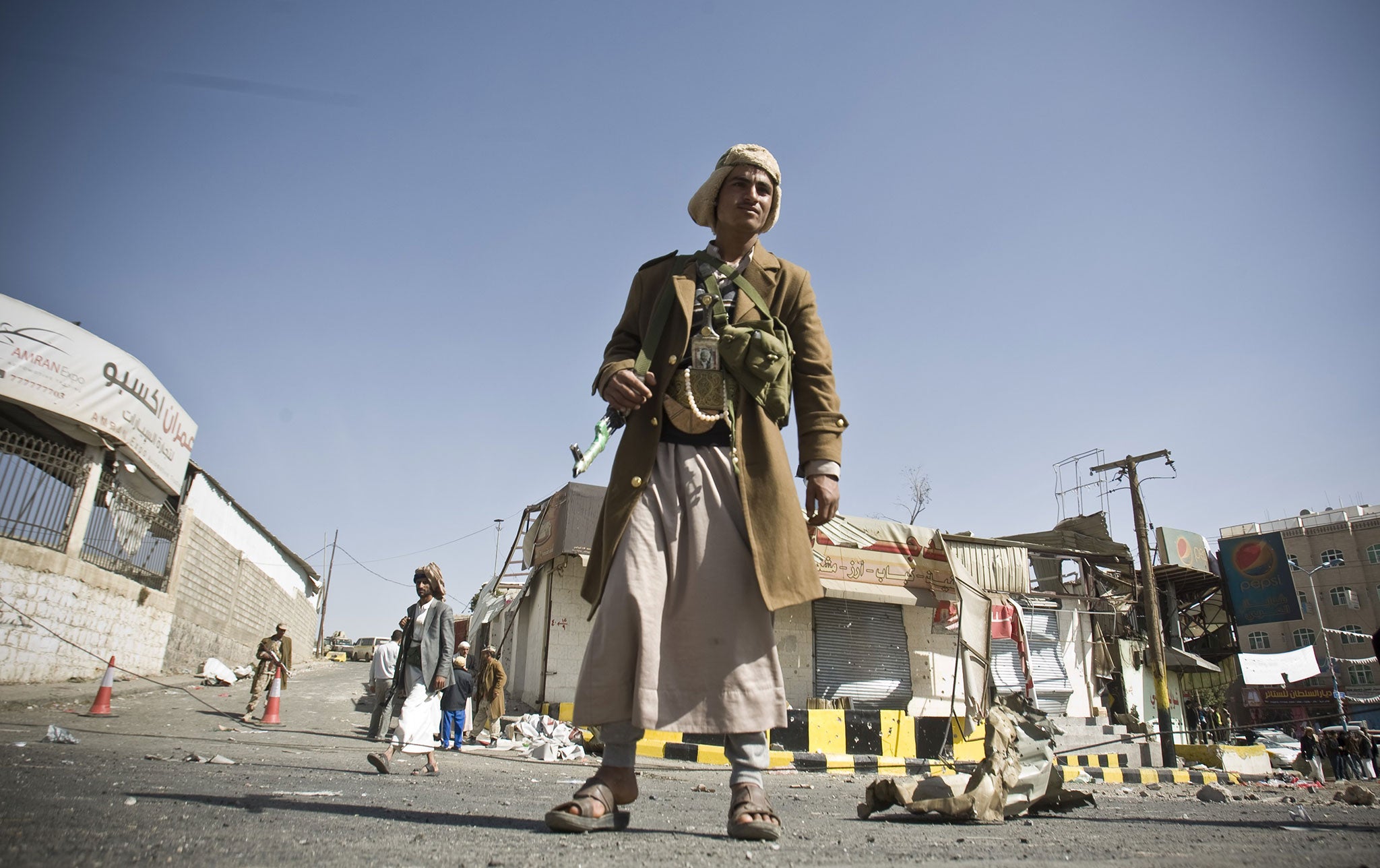Pentagon loses control of US arms and military equipment worth $400m to Yemeni rebels
Obama says US involvement is 'not neat and not simple, but it is the best option that we have'

Chaos in rebel-controlled Yemen has left the Pentagon unable to monitor the vast arsenal it has supplied the country’s military.
The nation has been left leaderless after Houthi rebels seized the presidential palace last month amid fierce shelling, and prompted the resignation of the Western-backed President Abd Rabbo Mansour Hadi.
The 10 most conflicted countries in the world
Show all 10The rebels, aligned with Iran, are now said to control the Yemeni military’s arms bases, giving them effective control of US-provided weaponry, including artillery and tanks, supplied as part of a counter al-Qaeda strategy avoiding use of US troops on the ground.
The Houthi official slogan and emblem includes the words: "Death to America, death to Israel, damnation to the Jews".
A US defense official told the Guardian the unrest has “limited our ability to conduct routine end-use monitoring checks and inspections we would normally perform”.
Even though US military officials have not released specific details of the equipment it can no longer track, it has supplied an estimated $400m worth to Yemen since 2006, including night-vision gear, surveillance equipment, military radios and transport aircraft.
The allegiance of Yemen’s military remains unclear, as the nation experiences violence and unrest from both the Shia Houthis and al-Qaeda, which has vowed to fight the rebels in defence of the Sunni population.
The US training of Yemeni military, particularly on its surveillance drones, began before Barack Obama became president but has increased under him.
Last month Obama defended his administration's drone-based strategy against al-Qaeda militants in Yemen, saying the alternative would be to deploy U.S. troops, which was not sustainable.
"It is not neat and it is not simple, but it is the best option that we have," he said.
The US military has also propped up the Yemeni security apparatus, particularly its special operations forces.
In exchange for arms and training from the US, two successive Yemeni leaders – both now deposed – have opened their country to the drone strikes and other counter-terrorism operations conducted by the CIA and the Joint Special Operations command.
The US military has indicated it is willing to engage with the Houthi rebels.
John Kirby, the Pentagon spokesman, said in a press conference last week that that it is "accurate to say that the Houthis, as participants in these events, will certainly have reason to want to speak to international partners and the international community about their intentions.
"Given the political uncertainty, it's fair to say that US government officials are in communication with various parties in Yemen about what is a very fluid and complex political situation."
The anonymous defense official told the Guardian the US would seek to regain its monitoring ability over Yemen’s US-provided arsenal as quickly as it could.
“We continue to monitor the situation in Yemen closely and, as the security environment permits, we will continue working with the Government of Yemen to ensure equipment granted or sold to the Government of Yemen by the United States remains accounted for,” the official said.
In 2011, the UK government licensed the sale of £160,000 worth of bullets and body armour to the Yemeni army, after Prince Andrew met the country's Prime Minister for trade talks.
According to the Campaign Against Arms Trade, the UK's coalition government licensed £3.5m worth of weapons to Yemen in its first four years, including 400 assault rifles.
Yemen is also on the UK's countries of concern list for human rights and democracy.
Andrew Smith of Campaign Against Arms Trade said: "Weapons have a long shelf-life and can easily change hands.
"The lifespan of a weapon is often longer than that of the governments it is being sold to, and once they have left the UK there is very little oversight. It is extremely hard to know what they are being used for.
"The last thing that is needed in a war-torn region is more weapons."
A video emerged last year apparently showing Isis intercepting US weapons intended for Kurdish fighters.
Subscribe to Independent Premium to bookmark this article
Want to bookmark your favourite articles and stories to read or reference later? Start your Independent Premium subscription today.

Join our commenting forum
Join thought-provoking conversations, follow other Independent readers and see their replies